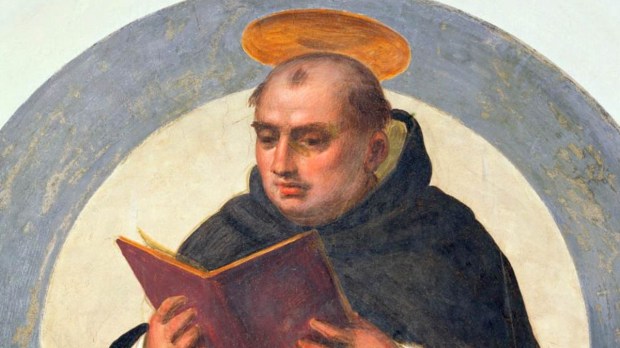If anxiety is a problem for you, you’re not alone. Far from it. Some 30% of American adults struggle with an anxiety disorder at some point in their lives.
For people of faith, we believe that true peace comes from God, and that conversation with God through prayer helps us grow closer to Christ’s peace. But how can prayer help us when we struggle with anxiety?
Several times in the Bible, Jesus says, “Do not worry,” for example in Matthew 6:25. Yet practically speaking, how are we supposed to turn off our worries and cares?
It turns out St. Thomas Aquinas had some wisdom for these situations, as he did for so many things. You can read more about his specific remedies for emotional distress here.
“St. Thomas Aquinas teaches that one way to combat anxiety is to grow in trust in God’s providential care for our lives,” said Dr. Edward Sri in an interview with Aleteia. “Daily prayer helps us do that. It helps us learn to rely on God and not on ourselves.”
Dr. Edward Sri is a theologian, author and well-known Catholic speaker who appears regularly on EWTN.
A great resource to prepare for times of anxiety is his video series, When You Pray: A Clear Path to a Deeper Relationship with God.
How prayer can help when anxiety begins
The first step is to notice when anxiety starts to creep into our thoughts.
“Whenever we lose our interior peace, it’s a sign we are falling into anxiety. It’s like the check engine light in our car going off,” Sri said.
Anxious thoughts could indicate that a person is “too attached to a certain plan, a certain dream, a certain relationship, and anxious that God is not going to take care of us and that we won’t have what we need to be happy,” he said.
There are three reasons that daily prayer helps us to grow in trust and peace. He explained:
1
Trusting God with our time
The act of taking time each day to give to the Lord in quiet, personal prayer is an act of trust: “I’m entrusting my life to God’s hands and trusting that the time I spend with God in prayer is the most important thing I do each day.”
2
Filling the mind with the good and true
Reflecting on Christ’s life, on Scripture, or on the wisdom of the saints fills the mind with the God’s love and motivates greater trust in him
3
Noticing the Holy Spirit’s promptings
“The more I learn to be attentive to the ways the Holy Spirit may be guiding me in prayer—the more I trust God to lead my life in smaller things—the more I will be prepared to trust Him when I face various crosses,” he said.
Daily prayer helps us know with confidence that, as St. Paul said, “In all things, God works for good in those who love him” (Romans 8:28).
Quiet time in meditative prayer each day makes an immense difference for many people. Through that time, Sri said, “God teaches me to surrender more, to put my life ever more in the Father’s hands. If I don’t learn that, I will often be paralyzed by fear, ‘worried and anxious about many things’ as I try to control and manage everything on my own.”
Certainly anxiety is a complex and multi-faceted issue, and ways to manage it will differ for each person. But what a gift to know that God’s love is available to us in prayer, and hopefully his peace as well.



